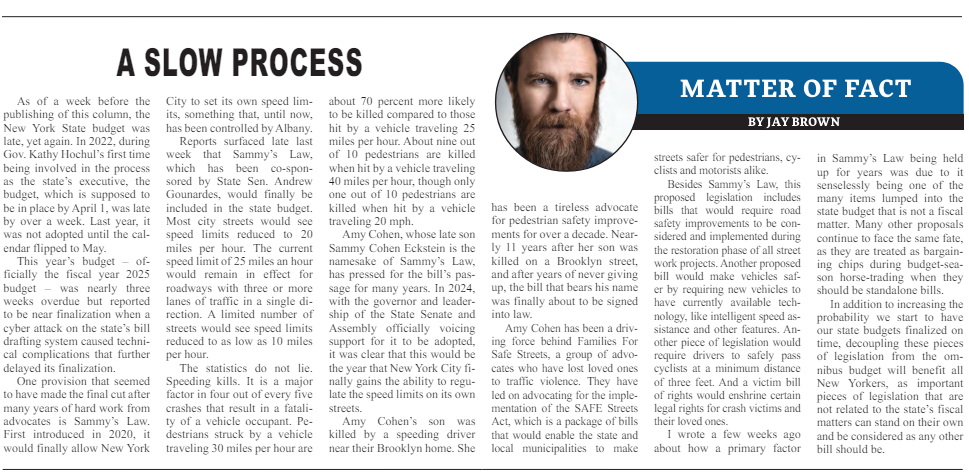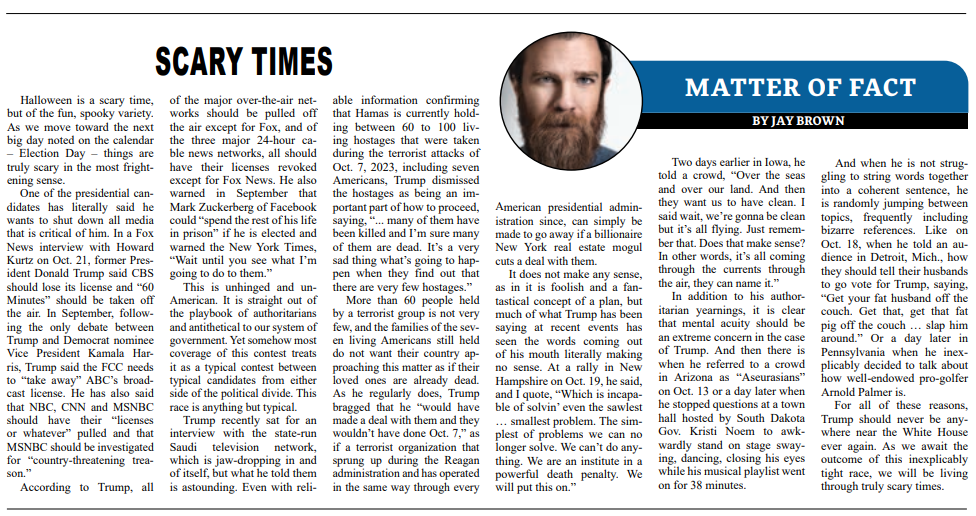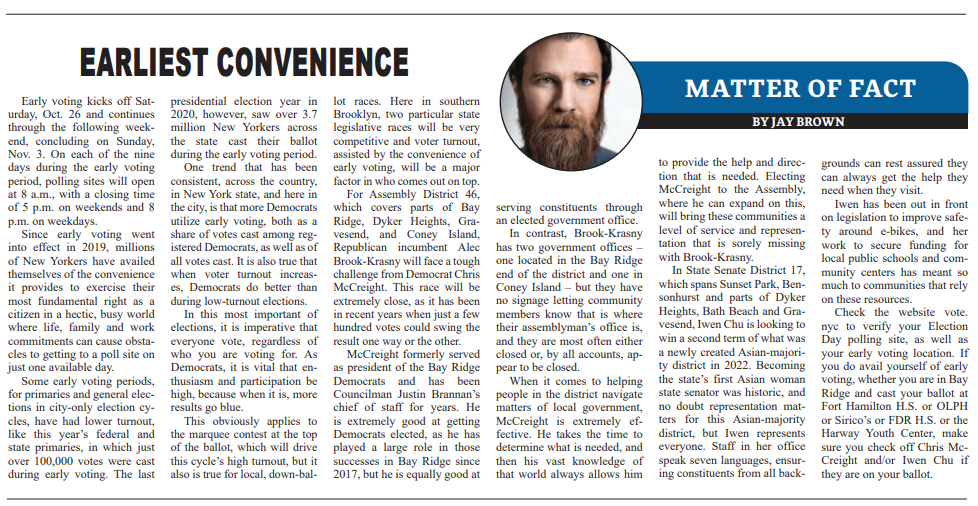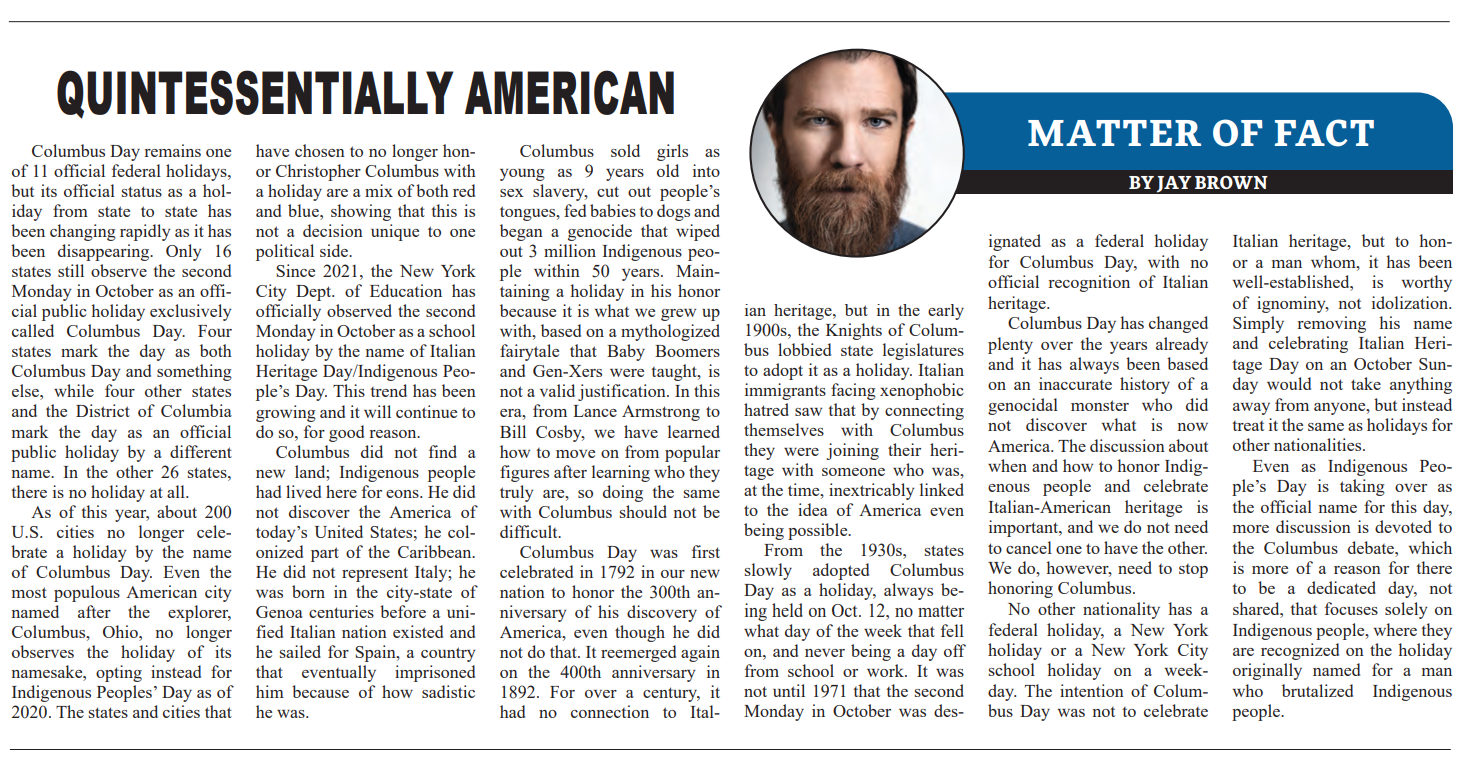A version of this column, from the weekly opinion piece MATTER OF FACT, first appeared on BrooklynReporter.com, the Home Reporter and Spectator dated April 26, 2024

As of a week before the publishing of this column, the New York State budget was late, yet again. In 2022, during Governor Hochul’s first time being involved in the process as the state’s executive, the budget, which is supposed to be in place by April 1, was late by over a week. Last year, it was not adopted until the calendar flipped to May.
This year’s budget – officially the fiscal year 2025 budget – was nearly three weeks overdue but reported to be near finalization when a cyber attack on the state’s bill drafting system caused technical complications that further delayed its finalization.
One provision that did make the final cut after many years of hard work from advocates is Sammy’s Law. First introduced in 2020, it would finally allow New York City to set its own speed limits, something that, until now, has been controlled by Albany.
Reports surfaced a week before the budget was passed that Sammy’s Law, which has been co-sponsored by Senator Gounardes, would finally be included in the state budget. Most city streets will see speed limits reduced to twenty miles per hour. The current speed limit of 25 miles an hour will remain in effect for roadways with three or more lanes of traffic in a single direction. A limited number of streets will see speed limits reduced to as low as ten miles per hour.
The statistics do not lie. Speeding kills. It is a major factor in four out of every five crashes that result in a fatality of a vehicle occupant. Pedestrians struck by a vehicle traveling 30 miles per hour are about 70 percent more likely to be killed compared to those hit by a vehicle traveling 25 miles per hour. About nine out of ten pedestrians are killed when hit by a vehicle traveling 40 miles per hour, though only one out of ten pedestrians are killed when hit by a vehicle traveling 20 mph.
Amy Cohen, whose late son Sammy Cohen Eckstein is the namesake of Sammy’s Law, had pressed for the bill’s passage for many years. In 2024, with the governor and leadership of the State Senate and Assembly officially voicing support for it to be adopted, it was clear that this would be the year that New York City finally gains the ability to regulate the speed limits on its own streets.
Amy Cohen’s son was killed by a speeding driver near their Brooklyn home. She has been a tireless advocate for pedestrian safety improvements for over a decade. Nearly eleven years after her son was killed on a Brooklyn street, and after years of never giving up, the bill that bears his name is finally law.
Amy Cohen has been a driving force behind Families For Safe Streets, a group of advocates who have lost loved ones to traffic violence. They have led on advocating for the implementation of the SAFE Streets Act, which is a package of bills that would enable the state and local municipalities to make streets safer for pedestrians, cyclists, and motorists alike.
Besides Sammy’s Law, this proposed legislation includes bills that would require road safety improvements to be considered and implemented during the restoration phase of all street work projects. Another proposed bill would make vehicles safer by requiring new vehicles to have currently available technology, like intelligent speed assistance and other features. Another piece of legislation would require drivers to safely pass cyclists at a minimum distance of three feet. And a victim bill of rights would enshrine certain legal rights for crash victims and their loved ones.
I wrote a few weeks ago about how a primary factor in Sammy’s Law being held up for years was due to it senselessly being one of the many items lumped into the state budget that is not a fiscal matter. Many other proposals continue to face the same fate, as they are treated as bargaining chips during budget-season horse-trading when they should be standalone bills.
In addition to increasing the probability we start to have our state budgets finalized on time, decoupling these pieces of legislation from the omnibus budget will benefit all New Yorkers, as important pieces of legislation that are not related to the state’s fiscal matters can stand on their own and be considered as any other bill should be.



